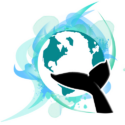Toxic chemicals from plastics found in Norwegian marine mammals
Plasticizers added to plastics give them their properties, but these chemicals can leach into the oceans and harm marine life. Recent studies found plastic chemicals in marine mammals in Norway, raising concerns about their prevalence and impact. To help, reduce plastic use, recycle, and support policies to ban harmful chemicals and protect ocean creatures.
Toxic chemicals from plastics found in Norwegian marine mammals Read More »
